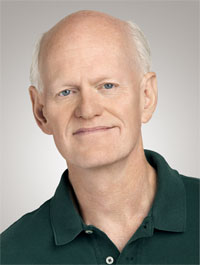Showing posts with label ask for feedback. Show all posts
Showing posts with label ask for feedback. Show all posts
Tuesday, August 28, 2012
Feedback Wisdom from Marshall Goldsmith
Marshall Goldsmith is an expert at helping senior leaders overcome habits that adversely affect their performance so they can achieve higher levels of success. He’s worked with more than 150 major CEOs and is considered by many to be America’s top executive coach.
He’s also the author of one of my all-time favorite business books, What Got You Here Won’t Get You There.
His advice applies to anyone who wants to build stronger relationships with the people who matter to them.
Implement these six steps if you want to make changes in your behavior that result in deeper, more satisfying relationship.
1. Ask for feedback.
People won’t always offer to tell you what bothers them about your behavior, so you have to be proactive about asking them. It’s the only way to get an accurate picture of the way others see you.
2. Express appreciation.
When others give you honest answers, thank them for their input. Think of every comment as a gift to help you see what others want from you.
3. Apologize for mistakes.
Tell them you’re sorry for any behaviors that have had a negative impact on them, and express your commitment to improve. Don’t let pride or concern that they won’t respect you get in your way. They’ll actually respect you more when you have the courage to offer an apology.
4. Tell them what you plan to do to improve.
When you make a verbal commitment to someone else about a change you want to make, you’re more likely to follow through. Vague statements about “working harder” or “trying to do better” won’t mean much, so you need to be specific about the actions you’ll take.
5. Follow up to find out if you ARE improving.
It’s hard to change people’s perceptions of who you are. Their prior experience with you has formed long-held opinions that aren’t easy to alter. Even after you start working to improve your behavior, they continue to access their ingrained image of you.
And they’re not nearly as focused on your self-improvement goal as you are. So they probably won’t notice all the changes that seem so obvious to you. To counter these perceptions, you need to ingrain a NEW pattern in their brain about your behavior in this area. This means repeatedly telling people what you’re working on, asking them how you’re doing and getting their ideas about how you can improve what you’re doing.
Which leads us to the last point…
6 - Use feedforward to get additional ideas.
Feedforward (a term Goldsmith created) is quite different from feedback. You get feedback from people about something you’ve already done. It’s often viewed as criticism because it identifies a problem. By contrast, feedforward focuses on the future. You ask others for their ideas that will help you improve even more.
With feedforward, you simply ask the person to give you two suggestions for the future that might help you achieve the positive change you want to make. The only ground rule is there can be no mention of the past.
Your job is to listen carefully to the ideas and take notes. Don’t critique or evaluate the suggestions. Simply say “Thank you.”
Here’s an example of what you could say: “I want to be a better listener. Would you suggest two ideas that I can implement in the future that will help me become a better listener?”
These six steps require courage because you may hear things that surprise you. But if you’re committed to your personal development, you won’t let discomfort prevent you from implementing them.
And if you’re looking for a tool that can help you make changes in your behavior, we’ve built a system with tons of multi-media resources, a coaching network of people who support you, and a process that makes it easy to ask them for feedforward. Check out the new custom versions of ProStar Coach and select that one that’s right for YOU.
“If we can stop, listen, and think about what others are seeing in us, we have a great opportunity. We can compare the self that we want to be with the self that we are presenting to the rest of the world. We can then begin to make the real changes that are needed to close the gap between our stated values and our actual behavior.” – Marshall Goldsmith (American author, 1949- )
Monday, April 11, 2011
Discover Your Unique Talent
Your unique talent or gift is obvious to the people who know you well. But maybe you take it for granted or don’t give yourself credit for it. In this video, Meredith Bell shares a quick, easy way to learn what your top strength is – and why you need to do that.
What unique talent or gift do you have that you can use to impact your world in a positive way?
What unique talent or gift do you have that you can use to impact your world in a positive way?
“People of talent resemble a musical instrument more closely than they do a musician. Without outside help, they produce not a single sound, but given even the slightest touch, a magnificent tune emanates from them.” – Franz Grillparzer, Austrian writer
Subscribe to: Posts (Atom)





